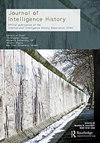休斯-瑞安修正案与情报监督:对立关系中的转折点
引用次数: 0
摘要
休斯-瑞安修正案为现代情报监督奠定了基础。它坚定地确立了秘密行动的行政所有权,挑战了内部合理推诿的概念。此外,它在情报方面改变了行政和立法部门之间的关系,使国会能够在被认为几乎纯粹是行政部门的职能方面取得立足点。虽然休斯-瑞恩的重要性是无可争辩的,但它的根源和催化剂却很少被详细探讨。本文描述了休斯-瑞安修正案的政治背景,讨论了它是如何以及为什么被引入和通过的,并解释了这项立法的结果。它引入了一个独特的分析框架来解释这一过程,探索国会行为的动态和制度约束,以解释为什么发生的变化,虽然在情报界具有决定性和影响力,但范围有限。本文章由计算机程序翻译,如有差异,请以英文原文为准。
The Hughes-Ryan Amendment and Intelligence Oversight: An Inflection Point in an Oppositional Relationship
ABSTRACT The Hughes-Ryan Amendment provided the foundation of modern intelligence oversight. It firmly established executive ownership of covert action, challenging the concept of internal plausible deniability. Moreover, it shifted the relationship between the executive and legislative branches in terms of intelligence, allowing Congress a toehold on what had been considered an almost purely executive branch function. While Hughes-Ryan’s importance is indisputable, its roots and catalyst have seldom been explored in detail. This article describes the political context of the Hughes-Ryan amendment, discusses how and why it was introduced and passed when it was, and explains the outcome of this legislation. It introduces a unique analytical framework to explain this process, exploring the dynamics of congressional behavior and institutional constraints to explain why the change that occurred, while definitive and impactful in the intelligence world, was limited in scope.
求助全文
通过发布文献求助,成功后即可免费获取论文全文。
去求助
来源期刊

Journal of Intelligence History
Arts and Humanities-History
CiteScore
0.50
自引率
0.00%
发文量
21
期刊介绍:
The Journal of Intelligence History is the official publication of the International Intelligence History Association (IIHA). It is an international peer-reviewed journal that aims to provide a forum for original research on the history of intelligence services, activities and their wider historical, political and social contexts. The journal aims to publish scholarship on all aspects of the history of intelligence, across all continents, countries and periods of history. We encourage submissions across a wide range of topics, methodologies and approaches.
 求助内容:
求助内容: 应助结果提醒方式:
应助结果提醒方式:


